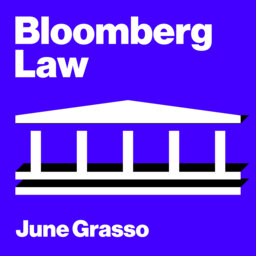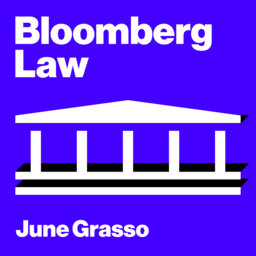10 Commandments & Trump Climate Whiplash
First Amendment law expert Caroline Mala Corbin, a professor at the University of Miami Law School, discusses the legal fight over Louisiana’s law requiring every public school classroom to post the Ten Commandments. Environmental law expert Pat Parenteau, a professor at the Vermont Law & Graduate School, discusses Trump’s executive orders to make a sweeping overhaul of US energy policy. June Grasso hosts.
In 1 playlist(s)
Bloomberg Law
Expert analysis on legal issues and cases in the news. Host June Grasso speaks with prominent atto…Social links
Follow podcast
Recent clips

Introducing: Bloomberg This Weekend
01:08

Weekend Law: Big Oil Seeks Climate Lawsuit Reprieve; States Sue RFK Jr
38:54

Tariffs Struck Down, Erasing History & Climate Rule Revoked
36:40
 Bloomberg Law
Bloomberg Law